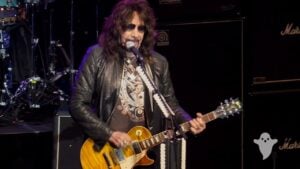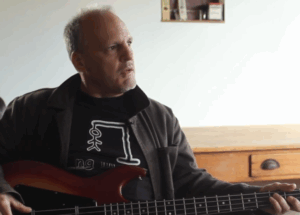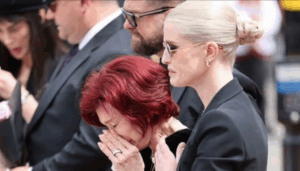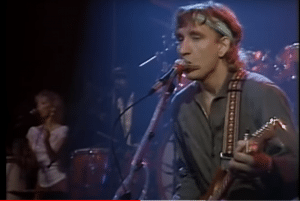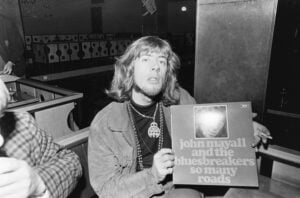Why 1970s Music Will Always Have a Comeback
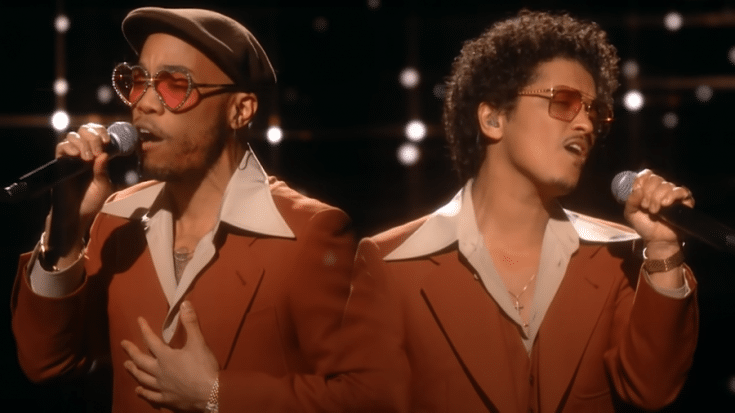
Maybe you’ve noticed some retro vibes taking over your playlists or the latest album drops with beats from the groovy era. It’s not just you. Yes, the ’70s are officially back in style.
From funky basslines to classic rock-inspired guitar riffs, pop hits are colored with the influence of the ‘70s, making their way into modern music. So, why does this particular decade keep returning to the top of pop culture? Let’s dive into this unforgettable era and why today’s artists and fans alike are drawn to its unique sounds, style, and spirit.
The Rise (and Decline) of 2000s Nostalgia
For years, the 2000s dominated the nostalgia scene. Think baby tees, frosted lips, and Mean Girls quotes all over social media. But with each trend cycle, we’ve gotten closer to running dry on fresh 2000s inspiration. “To say that we overdid the era is an understatement,” one writer puts it, highlighting how brands, musicians, and media “squeezed every ounce of natural glamour” out of the 2000s. People are finally moving on, and the ‘70s, with its unique aesthetic and creative freedom, is taking over as the “new” decade to celebrate.
Beyoncé and Silk Sonic: Bringing Back the Groove
Perhaps no one has done more to revive the ‘70s sound than Beyoncé and Silk Sonic. Beyoncé’s Renaissance album was a full-blown homage to disco and soul, blending classic ‘70s handclaps, breathy vocals, and groovy production. It’s a collection that makes you want to “twirl in a fitted Bob Mackie gown,” transporting listeners back to a time when dance floors were the place to lose yourself in the beat.
Bruno Mars and Anderson .Paak, the duo behind Silk Sonic, has also revived the ‘70s tunes to life. Their album, An Evening with Silk Sonic, perfectly captures the vibe of a dimly lit roller rink, blending slow grooves with rich harmonies that channel the era’s love for soul and R&B. India Shawn, a modern R&B singer, summed it up: “How I wish I could travel back in time to be a voice in the cultural and love revolution that was the 1970s.”
The Power of 1970s Soul and Its Message
What really draws us to the ‘70s soul music? The decade was more than just groovy beats and melodies. The ‘70s were filled with songs expressing raw emotions and social consciousness.
Artists like Stevie Wonder, Curtis Mayfield, Marvin Gaye, and Roberta Flack were among the music geniuses of the era who told stories and shed light on issues of their time. Music became a way for many to speak out about social injustices, setting these powerful lyrics atop “the funkiest bass lines” of the decade.
Today’s artists have embraced this approach in creating music – it’s not just about making a sound but delivering a powerful message. Modern music often addresses similar themes of equality, love, and social awareness. For instance, Lizzo’s empowering anthems and Kendrick Lamar’s reflective lyrics echo the spirit of the ‘70s soul, where music became a medium for cultural expression and a call for change.
Fashion, Politics, and the Decade’s Cultural Legacy
But it’s not just the music that keeps coming back—the ‘70s are alive in fashion and social movements, too. The ‘70s saw the rise of the power suit, a trend that’s returned in full force in recent years. Instagram and the streets alike are filled with bell bottoms, patterned suits, and platform heels. As Bri Malandro, a pop-culture archivist, notes, “‘70s style is something that’s stuck around since its debut,” citing the comeback of flare jeans, crop tops, and even layered haircuts.
More than a fashion revival, the decade represents a cultural moment when more women, especially Black women, entered the workforce and began asserting their place in corporate America. Social media platforms like Instagram have over a million posts under hashtags like “#70sFashion,” showing the decade’s influence on modern style. And just like in the ‘70s, when Black women’s voices were often sidelined in mainstream feminism, today’s social movements, including Me Too and Black Lives Matter, echo the fight for recognition and equality that began decades ago.
Shirley Chisholm became a powerful political voice during the ‘70s. She was the first Black woman elected to Congress in 1968 and the first to run for the presidency in 1972. This highlights one of the major progress during that time. Her motto, “Unbought and Unbossed,” connects with today’s younger generation, who continue to challenge the status quo in the fight for equality and representation.
Why We Crave That ‘70s Spirit
Another reason people are likely drawn back to the ‘70s is the era’s spirit of freedom and experimentation. Breaking the boundaries was the mantra. Musicians pushed the limits of genre, blending rock, soul, funk, and disco into new, exciting sounds. ‘70s fashion trends were equally bold, with unisex styles, psychedelic patterns, and flamboyant colors reflecting a spirit of self-expression. In a lot of ways, the era depicted rebellion against the conformities of the earlier years.
Today, social media platforms have opened doors for artists and fans to experiment, collaborate, and mix different musical influences. The openness of today’s pop culture echoes the same curious spirit of the ‘70s, when people were more willing to explore different sounds, styles, and ideas. Just as Stevie Wonder and George Clinton broke the rules with their genre-defying music, today’s artists blend influences in fresh and familiar ways.
The Lasting Legacy of ‘70s Feminism and Activism
The ‘70s also highlights a crucial period for women’s rights and social activism. The Women’s Strike for Equality in 1970 was one of the momentous events of that decade. Thousands of women gathered in New York City marking the 50th anniversary of women’s suffrage and drawing attention to the continued struggle for equality.
Among the women who led this movement was Betty Friedan, who brought issues of workplace discrimination, reproductive rights, and gender equality to the forefront. The ‘70s was an era where women began to find their voices, both in the streets and in the music scene. Political science professor, Jaimee Swift, highlights how Black women, emerging from the Civil Rights movement, found themselves overlooked within both the mainstream feminist movement and within their communities.
These are just some of the women who played a crucial role in advancing social change. Being marginalized for their contributions back then, women’s rights have been an ongoing fight that continues to challenge women of color even today.
Bringing Back the ‘70s with a Modern Twist
The ‘70s impact on modern culture has become stronger than ever. Modern-day artists, designers, and activists are inspired by the era’s strong message of freedom, social awareness, and creativity. Whether it’s a song from Silk Sonic song or a power suit on a fashion walk, we’re seeing a nod to a time that reshaped culture and society in profound ways.
The ‘70s were about challenging norms and pushing for a better world. It’s no wonder this era continues to connect with many of us today. So next time you’re grooving to a funky bassline or spotting some bell-bottoms on the runway, remember that you’re part of a long legacy of people celebrating self-expression and resilience. As they say, trends may come and go, but the ‘70s are here to stay.






